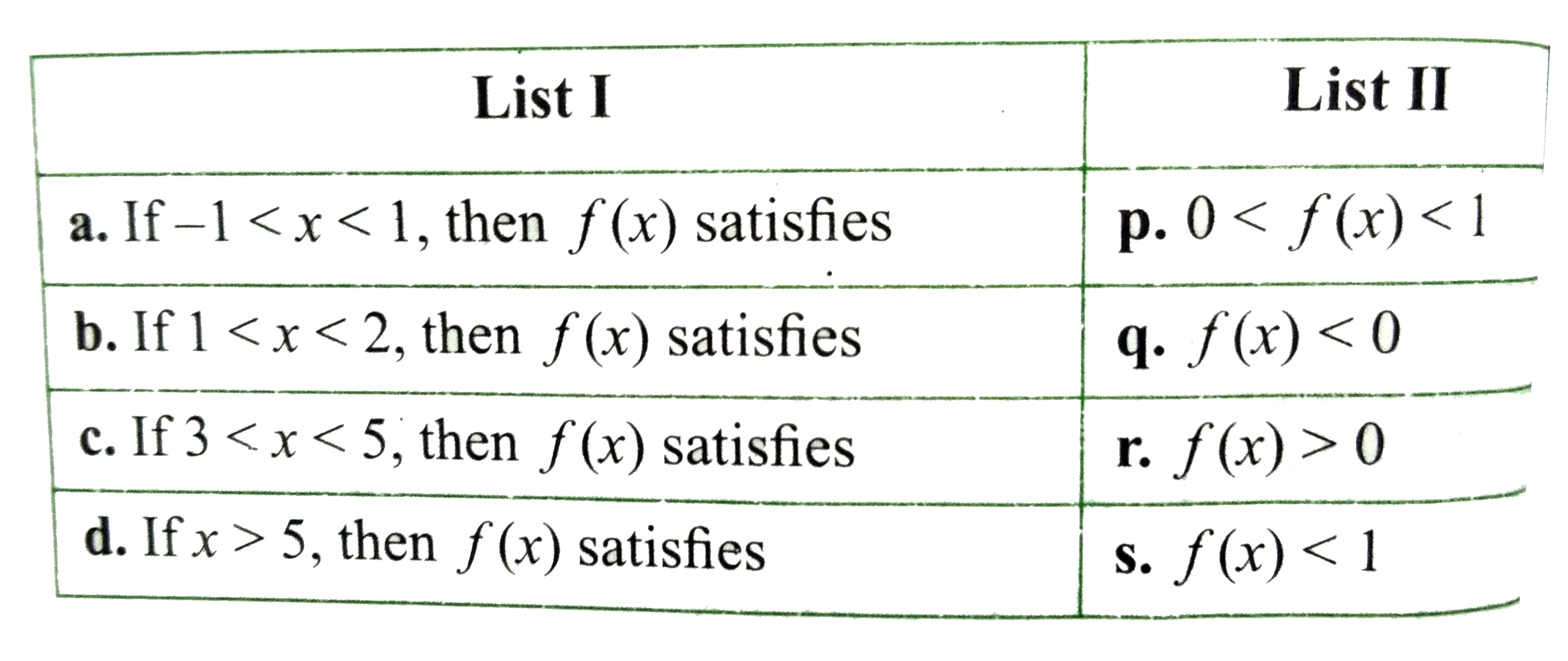For the following questions, choose the correct answer from the codes (a), (b), (c) and (d) defined as follows. Let F(x) be an indefinite integral of sin2x.
Statement I The function of F(x) satisfies
F(x+π)=F(x) for all real x. Because
Statement IIsin2(x+π)=sin2x, for all real x.
Match the conditions/expressions in Column I with statement in Column II.
d
Topper's Solved these Questions
- BOOK - RESONANCE ENGLISHCHAPTER - INDEFINITE INTEGRATION EXERCISE - PART-II JEE MAIN9videos
INDEFINITE INTEGRATION
- BOOK - RESONANCE ENGLISHCHAPTER - INDEFINITE INTEGRATION EXERCISE - HIGH LEVEL PROBLEMS (HLP)29videos
INDEFINITE INTEGRATION
- BOOK - RESONANCE ENGLISHCHAPTER - INDEFINITE INTEGRATION EXERCISE - COMPREHENSION5videos
INDEFINITE INTEGRATION
- BOOK - RESONANCE ENGLISHCHAPTER - FUNDAMENTAL OF MATHEMATICSEXERCISE - Exercise135videos
FUNDAMENTAL OF MATHEMATICS
- BOOK - RESONANCE ENGLISHCHAPTER - MATRICES & DETERMINANTEXERCISE - HLP34videos
MATRICES & DETERMINANT
Similar Questions
Let F(x) be an indefinite integral of sin2x
Statement I The function F(x) satisfies F(x+π)=F(x) for all real x.
Because
Statement II sin2(x+π)=sin2x, for all real x.View SolutionLet F(x) be an indefinite integral of sin2x
Statement-1: The function F(x) satisfies F(x+π)=F(x) for all real x. because
Statement-2: sin3(x+π)=sin2x for all real x.
A) Statement-1: True , statement-2 is true, Statement -2 is not a correct explanation for statement -1
c) Statement-1 is True, Statement -2 is False.
D) Statement-1 is False, Statement-2 is True.View Solution
Knowledge Check
- Question 1 - Select One
If f(x)=2 for all real numbers x, then f(x+2)=
A0B2C3Dx
If a real valued function f(x) satisfies the equation f(x+y)=f(x)+f(y) for all x,y∈R then f(x) is
View SolutionStatement I The equation f(x)=4x5+20x−9=0 has only one real root.
Statement IIf'(x)=20x4+20=0 has no real root.View SolutionA function f(x) satisfies the functional equation x2f(x)+f(1−x)=2x−x4 for all real x.f(x) must be
View SolutionLet f(x)=x2−6x+5x2−5x+6. Then match the expressions/statements in List I with expression /statements in List II.
 View Solution
View SolutionLet f(x)=sin(x3)+cos(3x10) for all real x. Find the least natural number n such that f(nπ+x)=f(x) for all real x.
View SolutionStatement I The function f(x) =xsinx and f'(x)=xcosx+sinx are both non-periodic.
Statement II The derivative of differentiable functions (non-periodic) is non-periodic funciton.View Solutionf is a function defined on the interval [-1,1] such that f(sin2x)=sinx+cosx. Statement I If x∈[−π4,π4], then f(tan2x)=secx Statement IIf(x)=√1+x,∀x∈[−1,1]
View Solution

